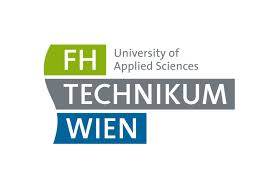Welcome to the Workshop on Human Factors in Intelligent Vehicles in its fifth edition.

This workshop is promoted by IEEE ITS Society’s on Human Factors in Intelligent Transportation Systems, TC on Human Factors in ITS Technical Activities Sub-Committee.
The workshop will take place at the Lindholmen Conference Centre Lindholmen Science Park, Gothenburg, Sweden on Sunday 19 June 2016.
It is the fifth edition to be co-placed with the 2016 IEEE Intelligent Vehicles Symposium, to be held in Gothenburg, Sweden, June 19 - June 22, 2016.
Aim and Scope
The IEEE Workshop on Human Factors in Intelligent Vehicles (HFIV’16) allocated with the 2016 IEEE Intelligent Vehicles Symposium, to be held in Gothenburg, Sweden, June 19- June 22, 2016, is the fifth edition of its series.
The HFIV’16 welcomes and encourages contributions reporting on original research, work under development and experiments of different fields related to Human Factors.
The IEEE Workshop series on Human Factors in Intelligent Vehicles aims to foster discussion on issues related to the analysis of human factors in the design and evaluation of intelligent vehicles technologies, in a wide spectrum of applications and in different dimensions. It is expected to build upon a proper environment to disseminate knowledge and motivate interactions among the technical and scientific communities, practitioners and students, allowing state-of-the-art concepts and advances to be further developed and enhanced.
IV technologies have experienced a great improvement in the last couple of decades, turning vehicles into more interactive counterparts in transportation and mobility systems. However, analyzing the impact of such technologies on traffic awareness for the drivers and their behavior towards improving driving performance while reducing road accidents as well as psycho and physical exhaustion still demands proper tools and approaches.
Whereas the feasibility of incorporating new technology-driven functionalities to vehicles has played a central role in the automotive design, not always safety issues related to interaction with the new in-vehicle systems have been taken into consideration. Additionally, other aspects are equally important and need to be accounted for, such as the impact technologies that support specific driving functions play on the primary task of driving the vehicle, as well as their impact on overall performance of transportation systems. Besides current industrial achievements that feature today’s vehicles with a number of important driving assistance systems, the perspective of autonomous driving vehicles populating urban settings pose even more challenging issues.
Also, the information and functionalities that rely on new ways of communication have to be presented in a non-intrusive way while complying with specific design requirements. A system that guarantees efficiency of use, comfort and user satisfaction is inarguably an important contribution towards a more conscious driving behavior that directly results from the adoption of IV technologies.
Topics of Interest
Some topics of interest include (but are not limited to) the following:
- Intelligent user interfaces
- Human-machine interaction
- Human-in-the-loop simulation
- Cognitive aspects of driving
- Interaction with Autonomous Vehicles
- Human behavior and capability, affecting system’design and operation
- Data sources, naturalistic data and synthetic data
- Behavior Modeling, Simulation and Analysis
- Methodologies to optimize overall system performance
- Tools and approaches to analyze human factors
- Ergonomics of traveler information systems
- Anthropometric layout of vehicular technical systems
- Mixed Reality
- Cross-Cultural Design
- Augmented Cognition
- User Experience and Usability
- User Interfaces for Autonomous Vehicles
- Computer Aided Ergonomics Analysis
- Effects of in-vehicle systems on driver performance
- Tools and methodologies for usability assessment
- Input/Output modalities in system ergonomic design
- Learning, Anticipation, and Adaptation balance
- Methodologies for driver training
Paper Submission and Publication
Prospective authors are invited to submit contributions reporting on their current research and ideas that motivate discussion during the workshop. Each paper will be analyzed by an International Program Committee according to quality of presentation, relevance and potential contribution.
Accepted papers will be included in the conference proceedings in a digital format and will be indexed in the IEEE Xplore Digital Library. Authors must follow the IEEE Conference format in the preparation of their manuscripts of maximum 6 pages in standard IEEE double column PDF format and submit them through the conference submission system for peer-review by the International Program Committee. All accepted papers will imply that at least one of the co-authors attends the workshop to present the work. Authors will be given a certain time to orally present their papers and discussion will be actively motivated among attendees. Titles and abstracts of invited talks that do not present a paper that has been accepted in the workshop will be published in the main conference proceedings.
Detailed submission instructions can be found on the Workshop Web site at HFIV’16, under the Submissions option.
Manuscript submission
HFIV’16 Workshop
IEEE IV’16
Oganizing Committee
University of Applied Sciences Technikum Wien, Vienna, Austria
Laboratory of Artificial Intelligence and Computer Science, Department of Informatics Engineering, University of Porto, Portugal
Manuscript preparation
The 5th HFIV Workshop welcomes contributions within the scope and topics of the forum. While preparing your manuscript, please do follow the same formatting guidelines specified by IEEE IV’16 main conference standard IEEE double column PDF of maximum 6 pages. Further, due to space constraints on the proceedings of the conference, all papers are limited to 2 MB and should preferably be less than 500 kB.
For the final version of the papers, please use Word or Latex templates and test the pdf file using the Papercept tool to avoid problems caused by wrong paper formats.
Further details on formatting, frequently asked questions and templates are available on the Conference Web Site.
Manuscript submission
Contributions must be electronically submitted in PDF files only, via the conference submission system for peer-review by the International Program Committee.
Please, to upload your paper follow the procedure below:
1. Log into the Papercept tool.
2. Select workshop submission
3. Specify the following code number for the Workshop on Human Factors in Intelligent Vehicles: cgmfb
Reviewing process
The reviewing process of contributions is certainly one of the most important aspects of building a strong, attractive and stimulating forum for practitioners and the scientific community. Each manuscript submitted to HFIV’16 will undergo a peer-reviewing process by at least three members of the International Programme Committee to ensure accepted papers will be of great interest and motivate an open and broad discussion among the audience. Contributions will be reviewed according to relevance to HFIV’16, originality and novel ideas, technical soundness and quality of presentation. Given the nature and aims of the forum, undergoing projects bringing into discussion state-of-the-art and cutting-edge ideas and novel trends are highly encouraged.
Authors of accepted papers must follow and carefully consider reviewers’ comments, guidelines, and suggestions during the preparation of their camera-ready version for inclusion in the workshop proceedings in a digital format.
Publication
Accepted papers will be included in the conference proceedings in a digital format and will be indexed in the IEEE Xplore Digital Library.
All accepted papers will imply that at least one of the co-authors attends the workshop to present the work.
Authors will be given a certain time to orally present their papers and discussion will be actively motivated among attendees.
Camera-ready manuscripts must be submitted by April, 22, 2016.
Conference Program
The workshop will take place on Sunday 19 June 2016 at the Lindholmen Conference Centre at Lindholmen Science Park, Gothenburg, Sweden.
You can access the IEEE IV’16 conference program through the Conference Web Site.
Keynote Speakers
Short bio

Dr. Hadj. Hamma Tadjine is Senior project leader at IAV GmbH, Germany. He received his engineer degree, D.E.A (Diplome d’Etude Approfondie), and the Third cycle degree, in Electrical engineering from the technical university of Blida in 1994, 1995 and respectively 1998. In 2004, he received his PhD in Computer science from the technical university of Clausthal Zellerfeld (Germany). From 2000-2004, he was professor assistant at the technical university of Clausthal (Germany).
From 2004- 2006, he was professor assistant at CUTEC institute GmbH (Germany). From 2006-2008, he was responsible by Hella Aglaia (Germany) for advanced driver assistance systems. From 2008- 2010, he was responsible by IAV GmbH (Germany) for Advanced Driver Assistance Systems and Park assistance systems.
Currently, he is responsible by IAV GmbH for technical strategy in the area of integrated safety and driver support. He has a track record of fundamental research on these topics which is documented by numerous publications by IEEE, VDI and SAE. He is the editor and editor in chief of different international journals. He is fellow Member of IACSIT (International Association of Computer Science and Information Technology), and SCIEI (Science and Engineering Institute).
He is advisory board member by SDIWC (The Society of Digital Information and Wireless Communications), WSEA (World scientific and Engineering Academy and Society), SAI (Science and Information Organization), and WASET (World Academy of Science, Engineering and Technology) and AICIT (The International Association for Information, Culture, Human and Industry Technology). He is also Chair, Technical co-chair and Publication chair of different international conferences on computer engineering and computer vision.
Short bio

Mr. Benedikt Schonlau finished his degree in Mechatronics in 2005 at the Ostwestfalen-Lippe University of Applied Sciences (Germany). Starting in the field of function development for Driver Assistance and Active Safety he has been working for IAV in Chemnitz for over 10 years now.
Between 2007 and 2011 Mr. Schonlau worked as project manager on the topic PreCrash. Since 2012 he is Head of Department Active Safety and Lighting Functions. In this role he is responsible for the worldwide establishment of IAV competencies in this field. He has a track record of fundamental research on these topics which is documented by numerous publications by IEEE, VDI and SAE. He is a member in Car2Car communication consortium as well as in ITS Niedersachsen.HFIV’16 Workshop Final Program
| 9am-10am | "Invited talk: Human Factors in the Automotive Industry"; Hadj Hamma Tadjine and Benedikt Schonlau, IAV GmbH |
| 10am-10:30am | "Automatic and Manual Driving Paradigms: Cost-Efficient Mobile Application for the Assessment of Driver Inattentiveness and Detection of Road Conditions ; Arman Allamehzadeh and Cristina Olaverri Monreal |
| 10:30am-11am | Coffee break |
| 11am-11:30am | "Evaluating Interactions with Non-existing Automated Vehicles: Three Wizard of Oz Approaches"; A. Habibovic, J. Andersson, M. Nilsson, V. Malmsten Lundgren |
| 11:30am-12pm | "Analyzing driver-pedestrian interaction at crosswalks: A contribution to autonomous driving in urban environments"; Friederike Schneemann Schneemann, Irene Gohl |
| 12pm-12:30pm | "Mobile based Pedestrian Detection with Accurate Tracking"; Fernando Garcia, Jesus Urdiales, Juan Carmona, David Martin Gomez, José María Armingol Moreno |
| 12:30pm-2:00pm | Lunch |
| 2pm-2:30pm | "Risk Predictive Shared Deceleration Control: Its Functionality and Effectiveness of an Early Intervention Support "; Yuichi Saito, Pongsathorn Raksincharoensak |
| 2:30pm-3pm | "JLR Heart: Employing Wearable Technology in Non-Intrusive Driver State Monitoring. Preliminary Study"; Vadim Melnicuk, Stewart Birrell, Panos Konstantopoulos, Elizabeth Crundall, Paul Jennings |
| 3pm-3:30pm | Coffee break |
| 3:30pm-4pm | "Embedded system for driver behavior analysis based on GMM"; Juan Carmona, Fernando Garcia, Miguel Angel de Miguel, Arturo de la Escalera |
| 4pm-4:30pm | "Study of the Capabilities of the Yellow Flashing Arrow Traffic Signal and Driver Response"; Samy El-Tawab, Matthew Phelan, Mohammad Almalag, puya Ghazizadeh |
| 4:30pm-4:45pm | Conclusions & Wrap up |
Inquiries and further information
Please send your requests by e-mail to the workshop organizers.
Contact details
If necessary, the Organizing Committee’s contact details are:

UAS Technikum Wien, Vienna, Austria
Höchstädtplatz 6, Room A5.33
1200 Vienna, Austria
Phone: +43 1 333 40 77-235
Email: olaverri @ technikum - wien . at (no spaces)

LIACC/DEI/FEUP
Faculty of Engineering, University of Porto
Rua Dr Roberto Frias, S/N, 4200-465 Porto, Portugal
Phone: +351 22 508 1566
Email: rossetti @ fe . up . pt (no spaces)






